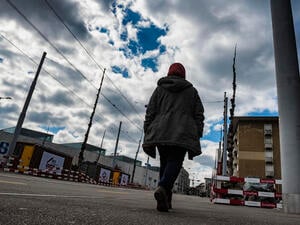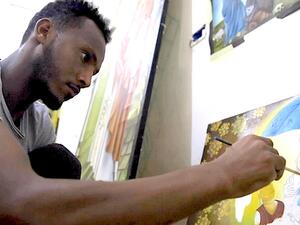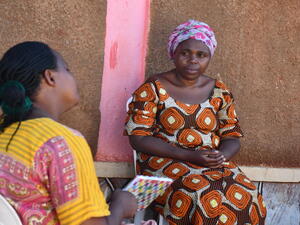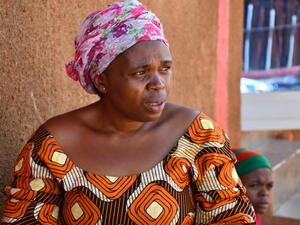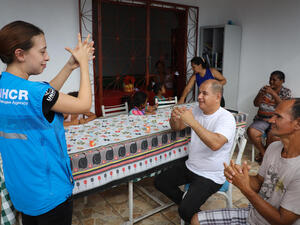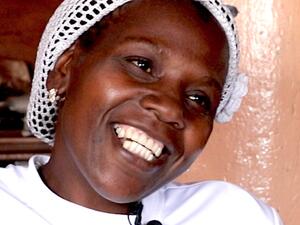Central African Republic: urban Congolese transferred for safety
Central African Republic: urban Congolese transferred for safety
UNHCR has started transferring urban Congolese refugees in Bangui, Central African Republic, to a refugee camp north of the city. Congolese refugees from the DRC's Equateur Province, who had been living in Bangui, began asking for transfer out of the city after a May 28 coup attempt, which caused havoc in the Central African Republic capital. Ensuing violence in Bangui claimed the lives of ten refugees of Rwandese, Sudanese and Congolese nationalities. Congolese refugees now fear for their safety, and some are opting for a camp transfer in search of more secure conditions.
To date, UNHCR has transferred 205 Congolese refugees to Molange, a camp 138 km north of the capital, in four separate convoys. Molange camp was opened in January 2001 for 1,600 refugees from the DRC who had just arrived in the Central African Republic. Once in the camp, they receive regular assistance, including food.
On average, a dozen refugees daily ask to be transferred from the city. They are referred to UNHCR by the National Refugee Commission (CNR). Bangui is home to about 9,000 urban refugees, most of whom come from Zongo and Libenge in the DRC's neighbouring Equateur Province. They fled the province in two waves, in January 1999 and again in July 2000 when fighting between rebel and government forces intensified. Urban refugees usually receive ad-hoc assistance from UNHCR, which can include food, medicine and cash grants for vulnerable cases.


